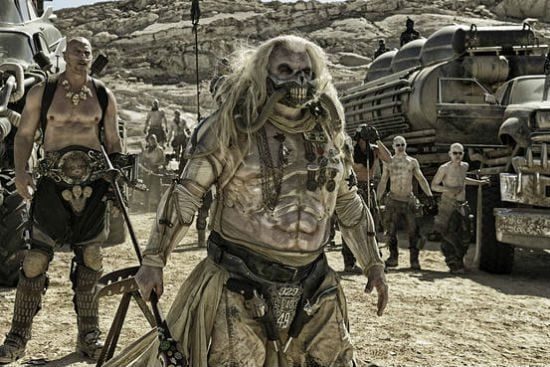Originally posted January 27, 2006.
You can read this entire series, for free, via the convenient Left Behind Index. This post is also part of the ebook collection The Anti-Christ Handbook: Volume 1, available on Amazon for just $2.99. Volume 2 of The Anti-Christ Handbook, completing all the posts on the first Left Behind book, is also now available.
Left Behind, pg. 198
Before making his full sales pitch for salvation to Rayford and Chloe, Bruce Barnes first has to explain the authors’ contention that such salvation is still possible for those left behind in the post-Rapture world. This is, of course, central to the premise of the whole series, the protagonists of which are the “Tribulation Force,” a kind of guerrilla army consisting entirely of post-Rapture Christians:
Bruce looked Chloe in the eyes. “There is no doubt in my mind that we have witnessed the Rapture. My biggest fear, once I realized the truth, was that there was no more hope for me. I had missed it, I had been a phony, I had set up my own brand of Christianity that may have made for a life of freedom but had cost me my soul. …
Not all premillennial dispensationalists believe that those left behind will be given a second chance to become Christians. This point, like most of the esoterica of this weird prophecy-obsessed subculture, is hotly debated by opposing factions. LaHaye and Jenkins thus take a brief break from the triumphalism over non-PMD Christians to engage in some intramural triumphalism over their opponents within PMD-world. Bruce continues as their mouthpiece:
“I had heard people say that when the church was raptured, God’s Spirit would be gone from the earth. The logic was that when Jesus went to heaven after his resurrection, the Holy Spirit that God gave to the church was embodied in believers. So when they were taken, the Spirit would be gone, and there would be no more hope for anyone left. You can’t know the relief when Pastor’s tape showed me otherwise.”
This idea of the Holy Spirit remaining present and active during the Tribulation may help to explain what we didn’t read about in the beginning of this chapter.
Rayford and Chloe easily drove from their suburban home to the church with no heightened concern for their safety. They weren’t worried about roving, anarchic gangs of hoodlums. They didn’t see abandoned cars set ablaze or the telltale smashed hydrant spouting a plume of water into the air (TV shorthand for “chaos has broken loose”).
The Steele’s walked into the church unchecked and unimpeded. Bruce Barnes did not greet them with suspicion, gun in hand, from behind a door locked against the godless degenerate hordes roaming the streets and burning the symbols of the God they despise.

Those are the sorts of things that our friends on the religious right have been predicting for years as the inevitable consequence of, say, the teaching of evolution in high school science classes, or the failure to erect huge monuments to the Ten Commandments in our courthouses, or legalized same-sex marriage, or even a John Kerry victory. All these things we’ve been told at one time or another would lead to chaos, anarchy, dogs and cats sleeping together, mass hysteria.
There’s a kind of logic to such predictions. The members of the religious right fervently believe that, in Dostoevsky’s phrase, “Without God, all is permissible.” Or, to use the phrase Glenn Tinder used in his provocative Atlantic Monthly essay, they believe we cannot be good without God.
From such a perspective, a godless society (i.e., a society that fails to acknowledge its explicit submission to the particulars of our sectarian notions of God) will inevitably be a lawless society.
This explains the fervor and the sense of high-stakes desperation underlying so much of the religious right’s rhetoric over so called culture-war issues. Civilization itself is at stake. If you really believe — or if the logic of your argument demands that you pretend to yourself that you really believe — that lawlessness, anarchy, raping and pillaging are only kept at bay by prayer in school then you will fight for prayer in school as though the fate of the nation depends on it. This is, in fact, exactly the “concern for America” that LaHaye’s wife, Beverly, repeatedly expresses through her group Concerned Women for America.
One has to wonder, then, why such lawlessness hasn’t erupted here in Wheaton or Carol Stream or wherever it is that Rayford Steele lives. America is no longer “one nation under God,” no longer a “Christian nation.” All the Christians are gone. There are no longer 50 or even five righteous men left in Sodom. Chaos should be erupting. It should no longer be safe to drive across town, or to keep the church doors unlocked.
I realize we’re only four days into the Great Tribulation at this point in the book, but shouldn’t we already being seeing some signs of the imminent lawlessness that, the religious right keeps telling us, may be just one Janet Jackson nipple-flash away from destroying us all?












